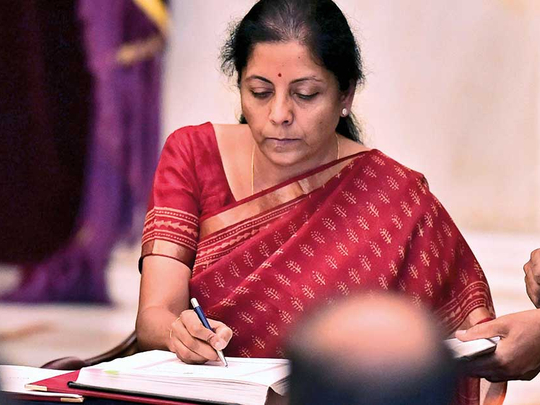
Mumbai: A six-member all-women team of the Indian Navy will set sail this Sunday to circumnavigate the globe on sailing vessel Tarini from Goa and will return in March 2018. Their expedition will be flagged off by India’s new and first full-time woman defence minister, Nirmala Sitharaman, on September 10.
This is the first circumnavigation of the globe by an all-women crew of the Indian Navy. The first Indian solo circumnavigation was undertaken by Captain Dilip Donde, retired, from August 19, 2009, to May 19, 2010, aboard an indigenously built vessel, Indian Naval Sailing Vessel (INSV) Mhadei, while a non-stop solo journey was carried out by Commander Abhilash Tomy from November 1, 2012-March 31, 2013.
INSV Tarini, a 55-foot (16.7-metre) sailing vessel built indigenously and inducted into Indian Navy in February this year, has already sailed around 8,000 nautical miles.
The all-women project’s aim is to empower women to attain their full potential and showcase ‘Nari Shakti’, or woman power, on the world platform.
The six young naval officers have trained extensively for the voyage — having sailed approximately 20,000 nautical miles on-board INSV Mhadei and Tarini as part of the training. This included two expeditions to Mauritius in 2016 and 2017 and a voyage from Goa to Cape Town in December 2016.
The expedition is skippered by Lieutenant Commander Vartika Joshi and the crew comprises Lt Commanders Pratibha Jamwal, P Swathi, Lieutenants Aishwarya Boddapati, Vijaya Devi and Payal Gupta, who hail from Uttarakhand, Himachal Pradesh, Andhra Pradesh, Telangana and Manipur respectively.
The voyage will be covered in five legs with stopovers in four ports: Fremantle, Australia; Lyttelton, New Zealand; Port Stanley, Falklands; and Cape Town, South Africa for replenishment of rations and repairs if necessary.
Some of the crew’s job on their voyage would include collating and updating meteorological/ocean/wave data on a daily basis for analysis and monitoring marine pollution on the high seas. They would also interact with local people of Indian origin (PIOs) at the port halts.












